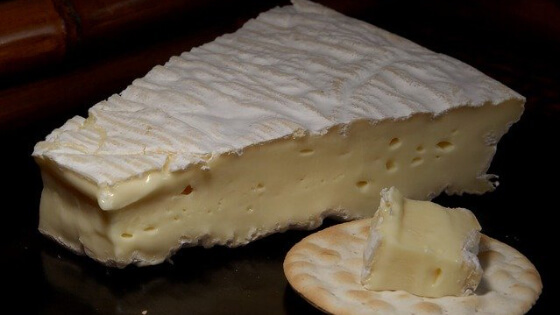Foods to avoid in pregnancy
As well as all of the healthy, recommended food that we looked at on the previous page, there are also certain foods that should be avoided during pregnancy – this is because they have the potential to cause harm to the mother’s health and/or the baby’s health.
Think first!
Do you know of any foods that are potentially harmful during pregnancy? Type some ideas into the box below before you move on.
Now click on the images below to find out more.
Cheese
The following cheeses should be avoided during pregnancy:
- Soft cheeses with white rinds, such as brie or camembert. These cheeses are only safe to eat in pregnancy if they have been cooked.
- Soft blue cheeses, such as gorgonzola or Roquefort. These cheeses are only safe to eat in pregnancy if they’ve been cooked.
This is because soft cheeses contain more moisture, compared with hard cheeses, which increases the risk of harmful bacteria (such as listeria) growing in them. Listeria can cause an infection called listeriosis, which can lead to miscarriage, stillbirth or severe illness. Cooking the cheese helps to destroy any harmful bacteria that may be present.
Eggs
As you learned on the previous page, eggs that have the red British Lion Code of Practice logo stamped on them are safe to eat in pregnancy – these eggs have come from hens that have been vaccinated against salmonella, so they can be eaten safely during pregnancy, either raw (in mousses or fresh mayonnaise), partially cooked (such as soft-boiled eggs) or completely cooked (such as hard-boiled eggs).
Eggs that do not have the Lion Code stamp on them should only be eaten when they are thoroughly cooked…until the white and the yolk are solid. This is because these eggs carry a greater risk of salmonella, which will be destroyed when the eggs are completely cooked through.
Salmonella is a type of bacteria that can cause food poisoning and while this won’t necessarily harm the baby, the mother will suffer severe diarrhoea and vomiting.
Fish and shellfish
As you learned on the previous page, pregnant women are advised to eat fish as a source of protein.
However, there are some types of fish that should be avoided and/or limited.
For example, pregnant women:
- Shouldn’t eat shark, swordfish or marlin.
- Should limit the amount of tuna they eat to no more than two tuna steaks or four cans of tuna each week. This is because tuna fish contains a lot of mercury, and this can affect the baby’s development.
- Should avoid eating more than two portions of oily fish (such as salmon or mackerel) each week, as they can contain higher levels of harmful toxins.
- Should only eat cooked shellfish (mussels, lobster, crab, prawns, etc) – never raw. This is because shellfish can contain harmful bacteria which can cause food poisoning.
Meat and pâté
The following advice applies to meat and pâté products during pregnancy:
- Avoid eating any raw or undercooked meat, as there is a potential risk of an infection called toxoplasmosis (you will learn more about toxoplasmosis at the end of this page).
- Many cold meats, such as salami, pepperoni and chorizo, are not cooked, which means that they also carry a risk of toxoplasmosis.
- All meat and poultry should be cooked thoroughly, until there is no trace of any blood or pink juices.
- Hands, utensils and cooking surfaces should be washed thoroughly after preparing raw meat.
- Don’t eat liver or any products containing liver (such as liver pâté or haggis) – these foods contain high amounts of vitamin A, and too much vitamin A can be harmful to the baby.
- All types of pâté should be avoided (even vegetable pâtés), as they can contain listeria and therefore a risk of harmful listeriosis infection.
Key point
Toxoplasmosis is a common infection, which anyone can catch…however, it can be particularly harmful if a pregnant woman is infected as toxoplasmosis can cause miscarriage or serious complications in a baby’s development.
Toxoplasmosis can be caught through contact with infected cat poo, infected raw or undercooked meat or from contact with soil that has been contaminated by cat poo.
To avoid the risk of toxoplasmosis, it is important that pregnant women:
- Wash all fruit, vegetables and salad ingredients to make sure all traces of soil are removed.
- Avoid eating raw or undercooked meat.
- Avoid unpasteurised goats’ milk.
- Wash their hands before preparing and eating any food.
- Wash hands, utensils and chopping boards thoroughly after preparing raw meat.
- Wear gloves while gardening.
- Wear gloves if they need to empty out a cat litter tray, and make sure the tray is emptied every day.




